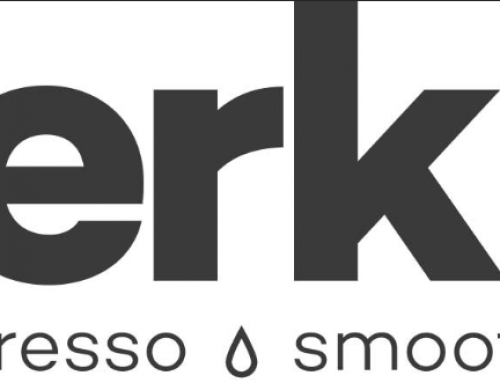“Cleantech, is any process, product, or service that reduces negative environmental impacts”.
For such a positive and innovative sector, why is Cleantech lacking diversity? Surely, it’s a place that people from all walks of life want to be involved in – regardless of gender, race, ethnicity, sexual orientation, social class, or religion. Assuming we’re in agreement – why is it still such a white, male dominated sector?
Throughout our Diversity in Cleantech campaign, we are not just looking for answers to these questions (although they may help), we are looking to find ways to create a welcoming space for people looking for a career in, or with an interest in the sector. We hope that through speaking with influential people from diverse backgrounds, within Cleantech, we will be able to learn from, be inspired by, and take note of their successes and failures.
Before we set off on our Diversity in Cleantech journey, I thought it was important to introduce myself, the person behind these words, and one half of the ‘Diversity in Cleantech’ campaign at Hyperion. So, with that being said –
Hi, my name’s Emma!
I graduated from university in 2019 with a BSc Psychology degree. I’ve always had an interest in people and a curiosity of why people act and react the way they do. This developed further during my studies at university, bringing with it a desire to always want to find out more. In my final year, I conducted and led a research project, looking at the relationships between motivation, wellbeing, and belonging – a topic that could be interesting across diversity in Cleantech!
After graduating, I spent some of my time fundraising, through organising events and doing a sponsored trek through parts of the Himalayas in Nepal – an experience I will never forget!
From living on a Kibbutz in Israel for several months, visiting ‘townships’ in Namibia, and stopping by in rural villages high up in the Nepalese Himalayas, I’ve been lucky enough to have experienced different cultures throughout the world.
On the kibbutz every family member was given the same wage, whatever their occupation, everyone was equal; all given a place to stay, food to eat, and a school for their children to be educated in.
What first stood out to me when visiting the ‘township’ in Namibia, was how welcoming the community were. They were so keen to show us around their homes which were so beautifully decorated and looked after. Although they didn’t have access to running water or electricity, or even the fact that their homes had been built using any materials that they could find, they were still extremely grateful for the things they had – family, community, and happiness.
When passing through Nepalese villages in the Himalayan mountain range, many had been hit by devastation from the 2015 Nepal earthquake. Villages had been rebuilt from scratch after losing everything – from their homes, family members, schools, possessions, and livestock, everything had been taken away from them. I was told by our guide that it would be unlikely to see any children above the age of 5, as barely any had survived. This particularly shocked me. The trauma they had faced 5 years prior was unimaginable, yet they somehow managed, as a community, to rebuild and restart their lives.
I’ve also spent some time working and traveling around the U.S.A., alongside people from six of the seven continents in the world. Being able to see the different qualities and characteristics that each person brings to a team no matter their social class, ethnicity, or sexual orientation – and so it baffles me that a sector like the Cleantech industry could show such a lack of diversity!
The main point I took from these experiences was the value of community – to look after one another, encourage each other to thrive, and to welcome others in. This is one thing I would love to help recreate. If our Diversity in Cleantech campaign could encompass 1% of the community spirit I was lucky enough to witness, I believe that we would have done a great job. Hopefully in turn, making Cleantech a welcoming sector for all, and diversifying the sector’s workforce.
Career-wise, originally my plan was to work for a year and then set off to see more of the world, but as you can guess, like much of the world my travel plans came to a standstill in 2020. At the time I was working in an airport – not the most secure job during a global pandemic! I came to the realisation that perhaps travel was off the cards for the next few years and that it was time to find a career which would develop my skills and allow my curiosity of people, to thrive.
If I’m being completely honest, I didn’t immediately think about Cleantech until I came across a job opening at Hyperion. The more I researched and learnt about the job, the Cleantech sector and the opportunities available, the more it became the place I wanted to be. The role seemed to have each aspect of what I was looking for in a career – room to develop and grow (not in height, I’m stuck at 5 foot), to do something good for the world, to get out of my comfort zone (I don’t think I’d be sat writing a blog by choice 6 months ago), to travel to events and to visit clients across Europe and the US (when the world allows), and constantly learn as new technologies come about and the sector develops more and more.
Whilst working at Hyperion I was surprised to see so many job openings and opportunities within the sector, when at home on the news all I would see and hear about was more redundancies, cuts being made and businesses struggling. Working in Cleantech is an escape from the ‘outside-world’ – each day I come into the office and see a Cleantech start-up secure funding, another continues to grow, another creates and develops new technology, another enters a new market – the list could go on and on, but what is clear, is that the number of opportunities in Cleantech are endless!
I’ve heard of the ‘Cleantech bubble’ numerous times in the last few months, and although this phrase makes the sector sound like a sort of community, when you look at the demographics of the sector, and its lack of diversity, it is clear that this ‘bubble’ or community isn’t reflective of society. In a sector which is so forward thinking when it comes to new technologies, new ways to stop climate change, and protect our planet – it seems there has been little attention given to develop a sector reflecting society as a whole. With the lack of diversity there is only so far Cleantech can go. The world is a diverse place and for Cleantech to assist in getting the world to a ‘net-zero’ and reach various other climate goals, the sector needs to be reflective of the world and its diverse population.
The bubble needs popping and Cleantech needs to welcome a diverse workforce.
In the short time I’ve spent in the Cleantech sector, I’ve learnt huge amounts – but don’t get me wrong, there is still an infinite amount left to learn and discover and I am so ready for the challenges ahead!
By Emma Beaver


